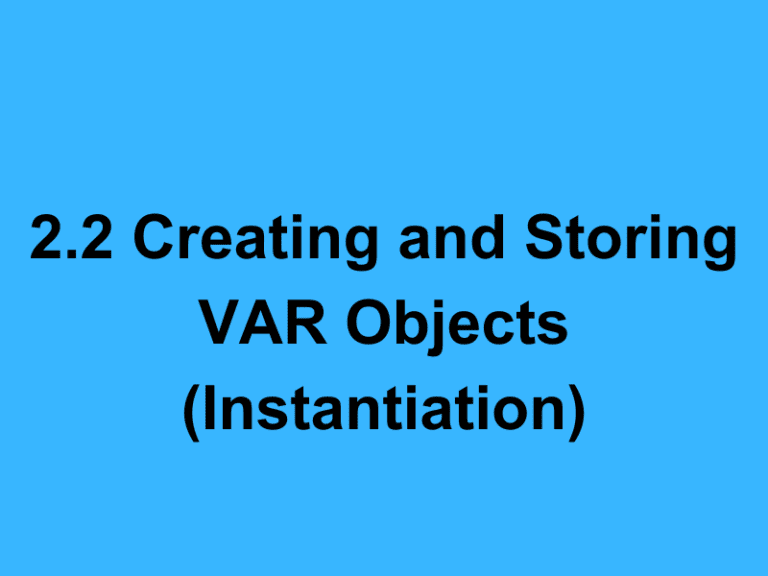In Java, the process of creating objects from classes is known as instantiation, and each created object is an instance of its class. Objects are the runtime entities that represent the state and behavior defined by their class. While Java does not have a built-in var keyword for object instantiation in the same way that dynamically typed languages do, Java 10 introduced the var keyword to infer the type of local variables, simplifying code without explicitly declaring the variable’s type.
Using var for Local Variable Type Inference
The var keyword allows you to declare local variables without specifying their type. The type is inferred by the compiler based on the context of its initialization. It’s important to note that var can only be used for local variables inside methods or initializers; it cannot be used for fields, method parameters, or return types.
Example Without var:
Car myCar = new Car();Example With var (Java 10+):
var myCar = new Car();In both examples, myCar is an object of the Car class. The second example uses var to infer the Car type from the right side of the assignment.
Advantages of Using var
- Readability: Reduces clutter in complex generic types without compromising code readability.
- Simplicity: Simplifies the declaration of variables with long or complex types.
- Maintainability: When refactoring or changing the type, you only need to change the assignment part, not the variable declaration.
Guidelines for Using var
- Initialization: Variables declared with
varmust be initialized. - Null Values: Cannot infer type from
null. Avoidvar obj = null;. - Literals: When using literals, the inferred type is the base type (e.g.,
intfor integers,doublefor floating-point numbers). - Scope: Use
varfor local variables where the type is evident from the right-hand side of the assignment. - Readability: Avoid using
varif the type is not clear, as it can make the code harder to understand.
Example: Instantiating Various Objects with var
public class Main {
public static void main(String[] args) {
var myCar = new Car(); // Infers Car type
var myList = new ArrayList<String>(); // Infers ArrayList<String> type
var myMap = new HashMap<Integer, String>(); // Infers HashMap<Integer, String> type
// Usage
myList.add("Hello");
myMap.put(1, "World");
System.out.println(myList.get(0) + " " + myMap.get(1)); // Prints: Hello World
}
}
Conclusion
The introduction of var in Java 10 for local variable type inference simplifies code by reducing verbosity without sacrificing type safety. It’s a feature adopted from dynamically typed languages, providing developers with flexibility and clarity, especially when dealing with complex types. Remember, its use is limited to enhancing readability and should not compromise the understandability of the code.
Frequently Asked Questions about Variables and Objects
- **Arrays/Lists:** A variable can hold an array (or list) where each element in the array is a reference to a different object (e.g., an array of `Car` objects).
- **Other Collection Types:** Variables can also hold other data structures like dictionaries, maps, or sets, which in turn store or reference multiple objects.
To inspect the entire contents of an object (all its properties and their values), programming languages offer debugging tools or functions. Examples include:
- JavaScript: `console.log(myObject)`
- Python: `print(my_object)` or using a debugger
- PHP: `var_dump($myObject)`






